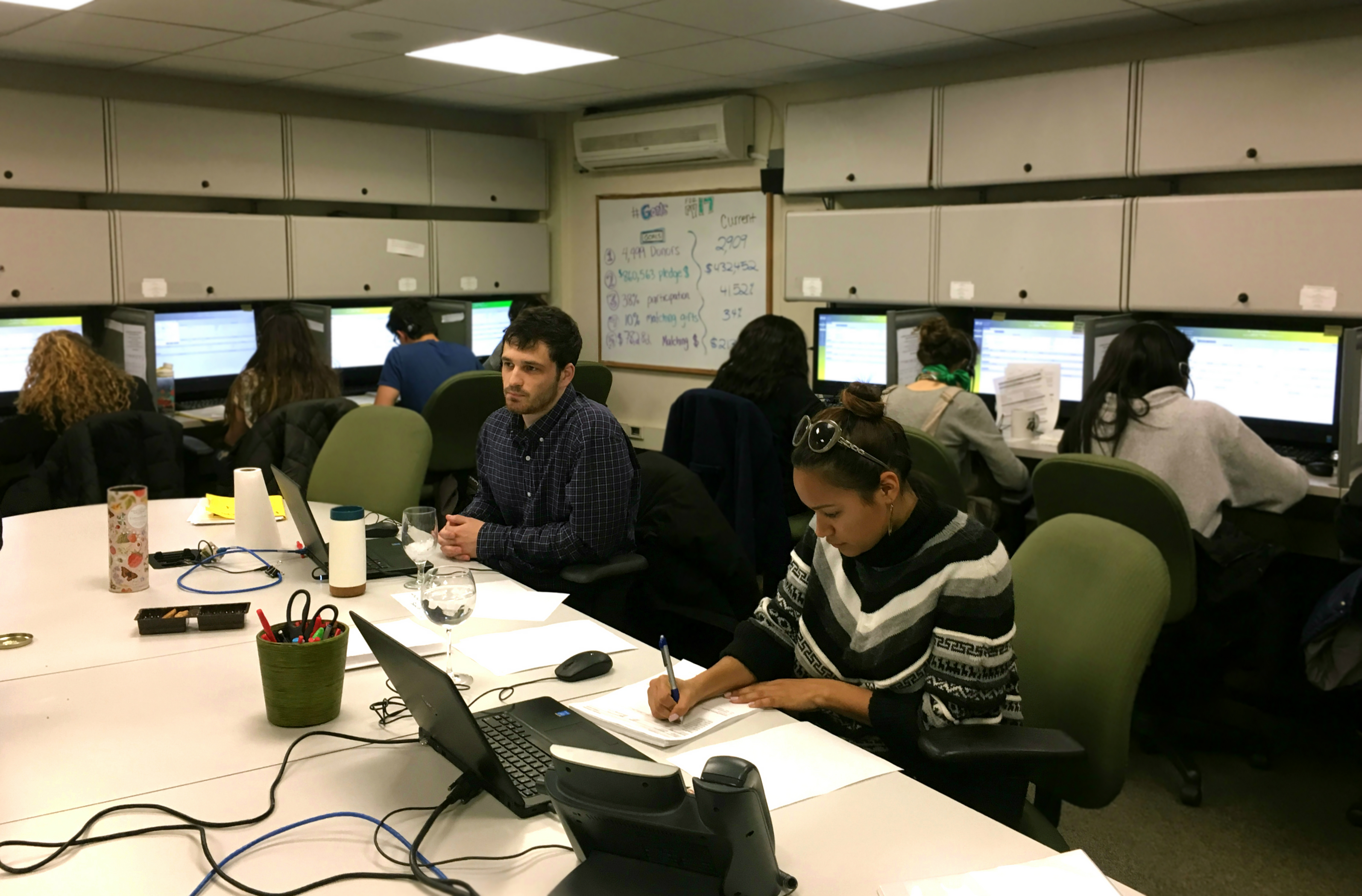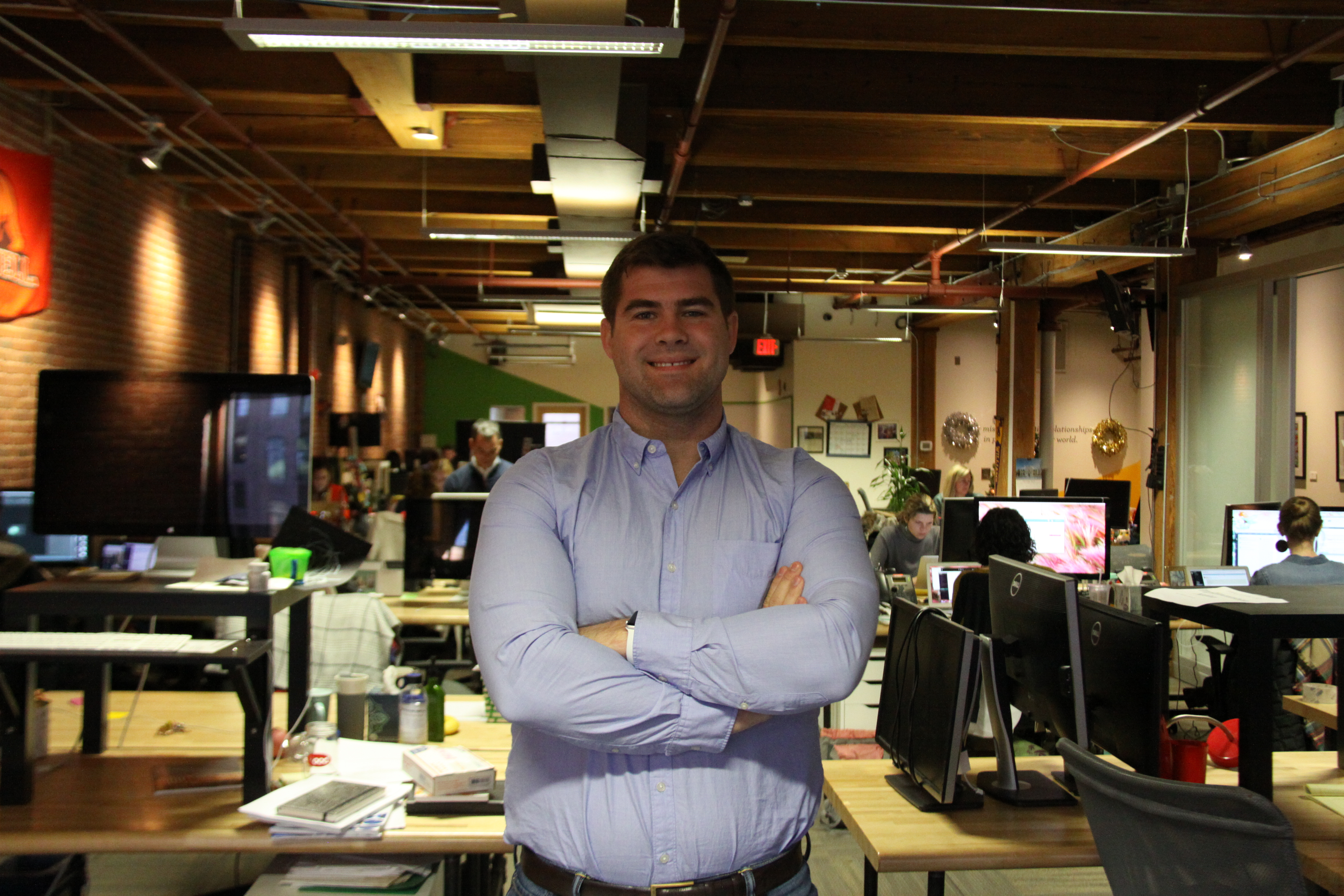
Inside Brandeis University's development office, fifteen work-study students face a bank of computers, entering data and making calls. (Lydia Emmanouilidou/WGBH)
Inside Brandeis University's development office, fifteen work-study students face a bank of computers, entering data and making call, after call, after call.
"Sometimes people pick up and like they're not really willing to give," said Megan Boateng after confirming a $30 pledge. "It is nice to at least get one person every night.”
Brandeis considers this phonathon a success. But increasingly, Brandeis and hundreds of other universities are augmenting these antiquated tactics with tools more suited to the modern world. Some schools, like Stanford University, have dropped the phonathon altogether.
"We needed an efficient way to measure engagement with social media,” said Cheryl Crounse, the campaign manager at Salem State University, just north of Boston.
Six years ago, Crounse was hired to run the school's $25 million fundraising effort.
At the time, Salem State was doing traditional things like phonathons and mailings. Then, halfway through the five-year campaign, Crounse tried something different - something she calls “the Amazon approach to fundraising.”
"If you like or look at something on [Amazon's] page, they start marketing every time you're anywhere on the web.We're trying to match our alumni who are liking these things to things that we need,” Crounse said.
Using a software called EverTrue, Salem State can now track who's keeping up with their many Facebook pages and who's “liking” what.
Instead of sending out thousands of marketing and fundraising mailers or emails, the university, like a well-oiled political campaign, can hone in on the most engaged alumni.
The software also lets the school know where alumni live and what they're up to, through their Linkedin accounts.
Last month, Salem State reached its $25 million goal.

Brent Grinna is the founder and CEO of Boston-based EverTrue (Kirk Carapezza/WGBH)
EverTrue is a Boston-based startup, the brainchild of Brown University graduate Brent Grinna.
Grinna first came up with the idea when he was helping to organize his five-year college reunion, and realized that while his alma mater knew where people were, they had absolutely no idea who they were.
"What you studied? Have you given in the past? If so, to what? That’s all proprietary. But then you start looking at: Who are you today? What’s your career path been? What are you interested in? What else do you like online?"
Grinna and colleges lament that EverTrue hasn't quite reached Amazon's capability for knowing just about everything about our habits. But he says one thing is clear: alumni, especially younger ones, want a quick, personalized approach.
"You’re going to lose some people who actually might be willing to give but they’re gonna fall off through the process and that’s where part of our platform is really designed to bring that kind of Amazon checkout experience to giving. Because if I can’t do in 60 seconds, I’m not going to do it,” Grinna said.
Regardless of speed, colleges seeking donations are facing an even bigger challenge.
"Giving rates have declined," said Una Osili, who teaches the economics of philanthropy at Indiana University. "A smaller fraction of alumni are giving every year.”
Osili says just 36 percent of young people are supporting any non-profit organization. Compared to their older counterparts, that percentage is much lower.
"Even when we adjust for the differences in income and wealth, we still find lower giving rates for millenials. They faced a more challenging labor market and many of them have not yet established their economic and financial lives," Osili said.
And those who have established themselves - when they answer the phone, cut the check or respond to an email - are donating much less to their alma mater than alumni who graduated in decades past with much less student debt.
Earlier: In Competitive Higher Ed Marketplace, Colleges Rebrand










